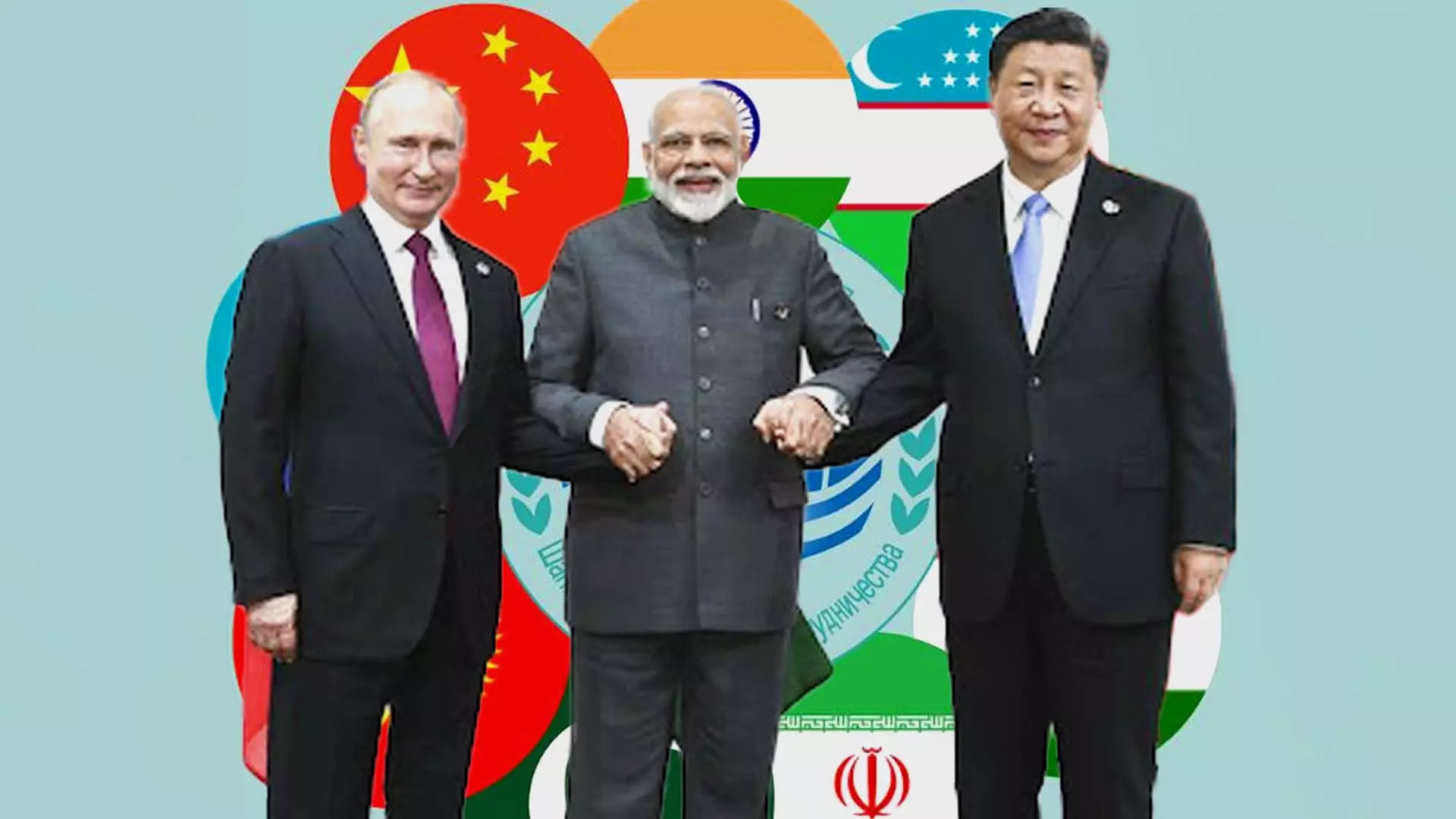
Modi in SCO summit
Modi at SCO 2025: Five key things to watch in Tianjin
As Modi heads to SCO summit in Tianjin, five issues will shape India’s role—from security to China ties. Can New Delhi strike a balance?

Prime Minister Narendra Modi is set to attend the 25th Shanghai Cooperation Organisation (SCO) Summit in Tianjin, China, on August 31 and September 1, 2025. This critical multilateral event will see the participation of leaders from Russia, China, the Central Asian Republics, Pakistan, Iran, and Belarus, with India’s diplomatic moves under global scrutiny.
Modi's presence at the summit comes amid shifting geopolitical tensions — from rising security threats to trade disruptions caused by US tariffs. India’s participation will be closely watched for its strategic balancing act across several competing priorities.
Here are five key focus areas expected to shape India’s engagement at the summit.
Push on security cooperation
At the forefront of India’s agenda is regional security. Modi is expected to call for stronger coordination through the SCO’s Regional Anti-Terrorist Structure (RATS), focusing particularly on transnational terrorist networks that threaten India’s national security.
Cross-border terrorism — particularly emanating from Pakistan — remains a key concern for India. The summit presents an opportunity for New Delhi to seek a broader consensus within the SCO bloc on actionable steps to counter such threats.
Given the SCO’s growing emphasis on security collaboration, India will likely press for operational mechanisms to track and tackle terror financing and extremist networks across member states.
Spotlight on trade and connectivity
With US-imposed tariffs weighing heavily on India’s exports, Modi is expected to shift part of the economic conversation toward regional trade. India will underscore the need for enhanced connectivity among SCO nations to create alternate trade corridors.
The International North-South Transport Corridor (INSTC), Chabahar Port access, and other overland routes linking Central Asia to India are likely to be highlighted. These are seen as crucial not only for trade but also for reducing Chinese dominance over regional logistics.
India will also promote digital public infrastructure cooperation among SCO countries, a pitch that has gained traction following India’s leadership during the G20 presidency.
India-China thaw under test
The summit marks the first multilateral setting since the October 2024 BRICS talks in Kazan, where a tentative thaw was observed in India-China relations. The SCO summit will serve as a litmus test to see whether that easing of tensions can translate into substantive dialogue.
While a confirmed bilateral between Modi and Chinese President Xi Jinping has not been announced, diplomatic observers expect backchannel talks on border disengagement and trade bottlenecks to resume.
Improved optics with China would be significant for India, not just in easing military tensions along the Line of Actual Control (LAC), but also in recalibrating economic engagement amidst decoupling pressures.
High-stakes bilaterals expected
Apart from the main summit sessions, Modi is expected to hold key bilateral meetings with other SCO leaders. A meeting with Russian President Vladimir Putin is on the cards, especially in light of growing energy cooperation and arms trade amid sanctions.
A potential Modi–Xi bilateral, if it happens, will be one of the most closely scrutinised events of the summit, offering insights into how India navigates its complex triangle with Russia and China.
India’s outreach to Central Asian countries will also remain in focus, as these nations look to hedge between competing powers — China, Russia, the West — and India offers itself as a reliable partner.
India’s global voice grows
As Modi returns to China for another high-profile global forum, expectations are high that he will reiterate India’s core messages: counter-terrorism, climate cooperation, and equitable global growth.
At last year’s SCO summit in Astana, Modi had emphasised the need for collective action on global challenges. This year’s summit offers a chance to reinforce that vision amid a fractured world order.
"India stands for a cooperative, multipolar world anchored in mutual respect and peaceful coexistence," Modi had said previously at an SCO forum — a line that may return with added weight this year.
Strategic balancing act ahead
As global flashpoints multiply and alignments shift, India’s challenge is to engage SCO’s heavyweights without compromising its own interests. Whether on security, trade, or diplomacy, New Delhi must find ways to influence without being cornered.
With the summit days away, the spotlight remains fixed on Modi: Can India maintain its delicate balance of partnerships and rivalries — and emerge as a stable, strategic voice in an unstable region?
The content above has been transcribed from video using a fine-tuned AI model. To ensure accuracy, quality, and editorial integrity, we employ a Human-In-The-Loop (HITL) process. While AI assists in creating the initial draft, our experienced editorial team carefully reviews, edits, and refines the content before publication. At The Federal, we combine the efficiency of AI with the expertise of human editors to deliver reliable and insightful journalism.

